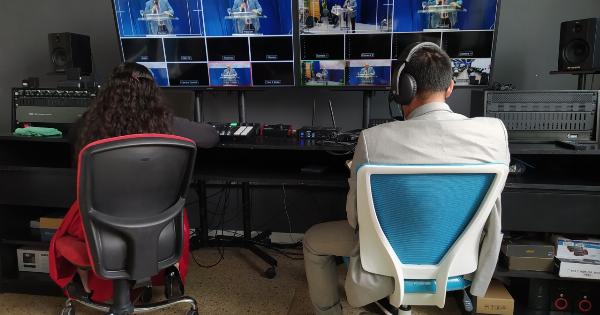In an effort to promote gender equality and ensure fair opportunities for women, the state of Anderson has taken significant steps towards implementing statewide assessments specifically designed for females.
This groundbreaking initiative aims to address the existing gender disparities and provide comprehensive evaluation tools that cater to the unique qualities and challenges faced by women. By collaborating with experts and organizations, Anderson seeks to revolutionize the assessment system, fostering a more inclusive educational environment and empowering women across the state.
Understanding the Need for Gender-Specific Assessments
Gender-specific assessments recognize that men and women can have diverse strengths, learning styles, and approaches to problem-solving.
The conventional standardized tests often fail to adequately capture the full range of abilities possessed by females, ultimately leading to an underrepresentation of their skills and potential. Through gender-specific assessments, Anderson intends to create a level playing field by providing evaluation methods that align with the unique strengths exhibited by women.
Developing a Collaborative Framework
Anderson’s effort to create statewide assessments for females involves collaboration among various stakeholders, including educators, psychologists, and experts in the field of gender studies.
This multidisciplinary approach ensures that the assessments are based on rigorous research, relevant data, and scientific methodologies. By engaging diverse minds in the development process, Anderson aims to overcome the limitations of traditional assessments and create a fair and comprehensive evaluation system that caters to the needs of all women.
Addressing Gender Bias
An integral part of the initiative is to tackle the issue of gender bias that can impact assessment outcomes. Biased assessment tools can perpetuate stereotypes and contribute to the underrepresentation of women in certain fields and industries.
Anderson recognizes the importance of an unbiased evaluation system and is committed to rectifying any existing biases in order to provide fair opportunities for all females across the state.
Piloting Gender-Specific Assessments
Prior to full implementation, Anderson plans to conduct a pilot program to assess the efficacy and validity of gender-specific assessments.
This pilot program will involve a diverse group of female students who will voluntarily participate in the new evaluation process. The data collected during this phase will be instrumental in refining the assessment tools, making necessary adjustments, and ensuring the validity and reliability of the final statewide assessments.
Training and Support for Educators
Anderson acknowledges the need for educator training and support in implementing gender-specific assessments.
Teachers and administrators play a crucial role in administering the assessments, interpreting the results, and creating a gender-inclusive environment where females can thrive. The state’s education board will conduct comprehensive training sessions to equip educators with the necessary knowledge and skills to effectively utilize the new assessment tools and support the academic growth of female students.
Benefits of Statewide Gender-Specific Assessments
The introduction of statewide gender-specific assessments in Anderson is expected to yield numerous benefits for women in education.
Firstly, it will provide a more accurate representation of their capabilities, allowing for recognition and validation of their unique skills. Secondly, it will enable educators and policymakers to identify specific areas of improvement and develop targeted interventions.
Additionally, the assessments will help guide educational and career counseling, ensuring that women are provided with appropriate support and opportunities to pursue their desired paths.
Long-Term Impacts and Future Prospects
By undertaking such a progressive initiative, Anderson aims to pave the way for gender equality within the education system and beyond.
The statewide assessments for females will serve as a powerful tool in advocating for equal opportunities and challenging societal norms that limit women’s aspirations. Moreover, the success of this endeavor may inspire other states and jurisdictions to adopt similar practices, ultimately fostering a more inclusive and equitable educational landscape nationwide.
Conclusion
Anderson’s decision to introduce statewide assessments for females in cooperation with various stakeholders reflects their commitment to promoting gender equality and ensuring fair opportunities for all.
Through gender-specific assessments, the state aims to rectify gender disparities, address biases, and provide a comprehensive evaluation system that aligns with the unique qualities and challenges faced by women. This groundbreaking initiative has the potential to revolutionize the education system, empowering women and fostering a more inclusive society for generations to come.



























